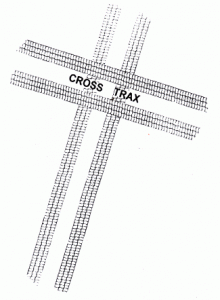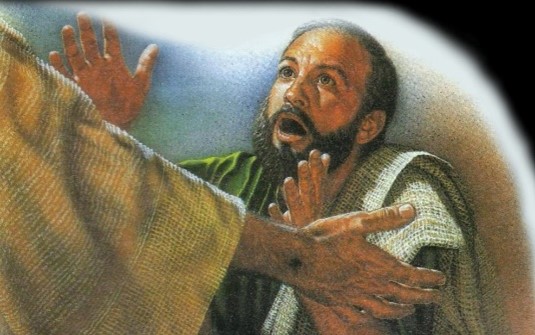CROSSTRAX!
One man’s view
about the things
that really matter….
Thank God for Sceptics?
During the spring of 1915, German U-boat attacks off the south coast of Ireland prompted the British Admiralty to warn the passenger ship Lusitania either to avoid the area or to take evasive measures in the hope of confusing any U-boats plotting its course. The Captain, however, didn’t believe the warnings, so he ignored them. Tragically, at 2:12pm on 7th May, the Lusitania was torpedoed on its starboard side. The blast of the torpedo was followed by an even greater explosion (the boilers?) and the ship sank 20 minutes later with the loss of 1,201 lives.
In the years before the start of WWII, political refugees from Nazi Germany had tried to warn European governments about the existence of Concentration camps in Germany, begging their intervention to abolish them. None of the governments believed them. In 1942 a group of Polish resistants sent the Allies a series of six photos showing the burning of corpses in Auschwitz-Berkenau; hundreds more sent testimonies of other extermination camps. Yet nothing was done because the authorities didn’t believe them. The truth of the reports and the enormities they described were only realised when the camps were liberated in 1945.
Even after the Japanese surrender in August 1945, numerous Japanese soldiers in the jungles of the Pacific refused to believe the announcements that the war was over, thinking them to be an enemy trick designed to flush them out of the jungles to be captured. One of them – Hiroo Onoda, was discovered in the Philippine jungle in 1974, and came out of hiding on 10th March, 1975 only after his former commanding officer travelled to the Philippines to meet him and convince him that the war was, indeed, over.
Ignoring the evidence can have enormous consequences! The Gospels describe another sceptic whose scepticism was, potentially, even more catastrophic than those I’ve just mentioned. His name was Thomas. We all know him by the moniker, ‘Doubting Thomas’, but this seems unfair given that not one of the disciples expected Jesus to rise from the dead.
Although (on numerous occasions) Jesus had told them that he would be killed and the rise from the dead, this prospect was so far beyond their sphere of comprehension that – even though Jesus had raised others from the dead – it didn’t penetrate their minds to reshape their expectations. If the disciples had entertained even a glimmer of hope that Jesus would ultimately emerge victorious, that glimmer had been obliterated by the savagery, the degradation and the enormous finality of His crucifixion. When the women went to his tomb on that Sunday morning, the last thing on their minds was a risen Jesus; they thought only of the huge, immovable stone and beyond it, Jesus’ cold, brutalised corpse, which they hoped to pack with spices to offset the stench of decay that was soon to come.
The unexpected removal of the stone and the shocking absence of the body produced in them no excitement or hope, but only a deeper distress and confusion, evoking floods of tears. Despite all that Jesus has told them, they saw his body’s absence only in terms of removal – resurrection never entered their minds! Consequently, Jesus’ appearance to them in the garden was so overwhelming that they couldn’t take it in; Matthew records that they returned to the apostles in ‘fear and joy’, but when they told them what had happened, they were greeted with ridicule: ‘these words seemed to them an idle tale, and they did not believe them’ (the Greek word translated ‘idle tale’ means, ‘that which is totally devoid of anything worthwhile, idle talk, nonsense, humbug’).
Nevertheless, an ember of hope was fanned. Peter and another disciple ran to the tomb and indeed found it empty, except for the linen cloths in which Jesus’ body had been wrapped. So:
• the women didn’t believe; and
• the apostles didn’t believe.
No-one believed that Jesus had risen: ‘they did not understand the Scripture, that he must rise
from the dead’ – they simply didn’t know what had happened! The only one who is said to have ‘believed’ did not believe that Jesus was risen; he only believed the women’s testimony that the tomb was empty!
That all changed when Jesus suddenly appeared (as a physical human being) to the disciples, who were assembled – for security reasons – in a closed room. It’s difficult to imagine the magnitude of their emotional transformation when Jesus appeared before them – one moment they were in a state of grief, depression, fear and confusion; in the next they were in a state of ‘stunned jubilation’ as they realised that the impossible had really happened!
But Thomas wasn’t with them.
Later, when Thomas returned and they told him that Jesus truly had risen – that they had seen and touched him – and although they were jubilant and overwhelmed by what had happened, Thomas refused to believe them. Thomas knew that the consequences of a Jesus risen from the dead are without parallel; he refused to commit his life’s hopes and identity to a person – no matter how impressive they were in life – purely on the basis of others’ say so. He wasn’t a person who would allow himself to be swept up by a euphoria when he wasn’t able to identify with its basis.
It may have been that, in the wake of his grief and shattered hopes, he wouldn’t risk having his hopes raised once more – only to have them devastated once again. The pain would be too much to bear. It must have been a stressful week! The disciples were dealing with the overwhelming impact of a bodily-resurrected Jesus, whereas Thomas stubbornly refused to join them until he was confronted personally with the ‘impossibility’ of a risen Jesus.
When Jesus appeared to him, the power of Thomas’ stubbornness was suddenly released in an eruption in an epiphany of truth and belief as he professed the risen Jesus before him to be, ‘my Lord and my God!’
Why is the ‘doubting’ moniker given only to Thomas? Why is he rebuked by Jesus when the others – none of whom believed that Jesus would rise – were not? Although the ‘doubting’ moniker came from preachers and not from the Scriptures, Jesus chided Thomas because he disbelieved, not only Jesus, but also the unanimous testimony of the disciples that Jesus had risen from the dead – just as He said he would. Life would never be the same again.
Probably because we know that a risen Jesus changes everything, most people avoid considering the question, ‘Did Jesus actually rise from the dead?’
Even if it’s the ultimate ‘inconvenient truth’, we must decide – is it really true? I wish that more people were like Thomas, who appreciated the unparalleled significance of Jesus’ resurrection from the dead. Thomas wouldn’t commit himself until he was convinced of the reality of Jesus’ resurrection. Nor should we! There’s no ‘blind faith’ here! We’re challenged to consider the evidence!
What about you? As you consider the evidence before you, ask yourself, ‘Are the Gospel accounts fabrications or are they eye-witness testimony?’ ‘Is Jesus’ resurrection the greatest hoax, or the greatest event, in history?’ Could Jesus truly be – as Thomas so shockingly concluded – ‘[our] Lord and [our] God’?
By TRAX friend The Rev. Ian Porter





